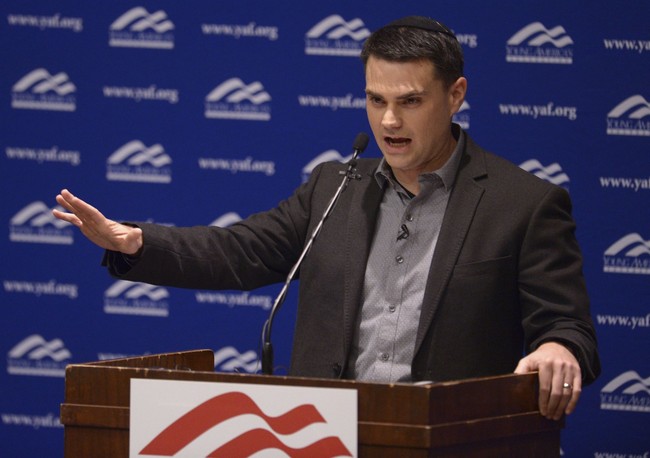
Today, the NY Times published an interview Ezra Klein did with Ben Shapiro on the subject of Shapiro’s new book. The interview was conducted before the assassination of Charlie Kirk but it’s interesting that the possibility of political violence came up during the discussion.
Shapiro’s new book looks at the national divide in a slightly different way. He divides the country and individuals into lions and scavengers. The basic idea, which he says is a choice made by every individual on any given day, is that lions are sort of the people motivated by masculine virtues like confidence, strength, creativity, self-reliance, risk taking, protecting the innocent, family formation, etc. The scavengers meanwhile are those who fixate on the perceived failures of others and entire systems, blaming someone else for their failures and seeking to tear down those systems rather than build anything of value.
At one point, Shapiro describes the scavengers as destructive people who wink at violence.
One of the characteristics of Scavengers is the willingness to wink, nod or participate in violence. The idea is that the systems are so oppressive that violence itself is justified. This is truly a scary thing that’s happening in American politics: the widespread justification for actual acts of violence that had been happening. In the book, I used the case of Luigi Mangione as a sort of example par excellence of this.
Quite a bit later in the discussion, Ezra Klein says he worries that the country is closer to street violence than it has been in a long time. Again, this is before the death of Charlie Kirk.
We are going to have to find some pathway forward to de-escalation. I think if the lesson the left takes from these years is: We’ll see how hard they went. We have to go 30 percent harder. It’s going to be a mistake.
My view is we are seeing the way this whole thing can break. The whole experiment can break. We’re getting too close to genuine violence in the streets for my liking. But I think it’s going to be very hard without trying to figure out some way to say: We have these political parties competing, we have to create spaces where people feel represented, even when they are out of power.
There’s a long introduction to the interview in which Klein mostly reflects on the death of Charlie Kirk and why it has impacted him so much, despite not knowing Kirk at all.
My reaction to this, honestly, is that it is too little to just say we oppose political violence. In ways that surprise me, given what I thought of Kirk’s project, I was and am grieving for Kirk himself. Not because I knew him — I didn’t. Not because he was a saint — he wasn’t. Not because I agreed with him — no, most of what he poured himself into trying to achieve, I pour myself into trying to prevent.
But I find myself grieving for him because I recognize some commonality with him. He was murdered for participating in our politics. Somewhere beyond how much divided us, there was something that bonded us, too. Some effort to change this country in ways that we think are good.
I believe this so strongly: We have to be able to see that the bullet that tore into him was an act of violence against us all.
I don’t know how to express this thought exactly. The nature of our politics right now is that it is ferocious. Our visions of what is good and even decent have diverged. The stakes of our politics right now are frightening; the consequences are real. We see one another as threats — and to some degree, we are right.
And it is also true that this country will be immeasurably worse if that is all we are to one another — if we cannot still see what binds us, if we cannot still feel ourselves as one body politic.
I think there is a sense in which this was pretty clearly and simply a political assassination by someone on the left aimed at someone on the right. I don’t think there’s any way to avoid that, nor should anyone try. But what we take from that is still an open question. Some have said, if this is how the left responds to the guy who was honestly trying to talk with them, why bother trying?
The anger people feel is entirely justifiable, but we don’t want to respond by burning down the bridge that Kirk spent his life building. I watched several Charlie Kirk videos last weekend and he often really gave people a lot of time to collect their thoughts and talk. He tended to put the mic down when people were talking so they knew he wasn’t just waiting for the first pause to jump on them. He let them know he had time to listen. He also tried to find common ground even when there didn’t seem to be any. He genuinely believed in the possibility of reaching and persuading people. He was an optimist in that sense.
Admittedly, it’s hard to feel optimistic right now but I think the path forward is still the one that Kirk outlined. Talk to people who disagree. Give them a chance to have their say and then try to persuade them. If conservative can field a dozen or a hundred more people who will do what Charlie Kirk did, they will win. The people who give in to despair and anger and violence will lose.
Join Hot Air VIP and use the promo code FIGHT to get 60% off your VIP membership!












